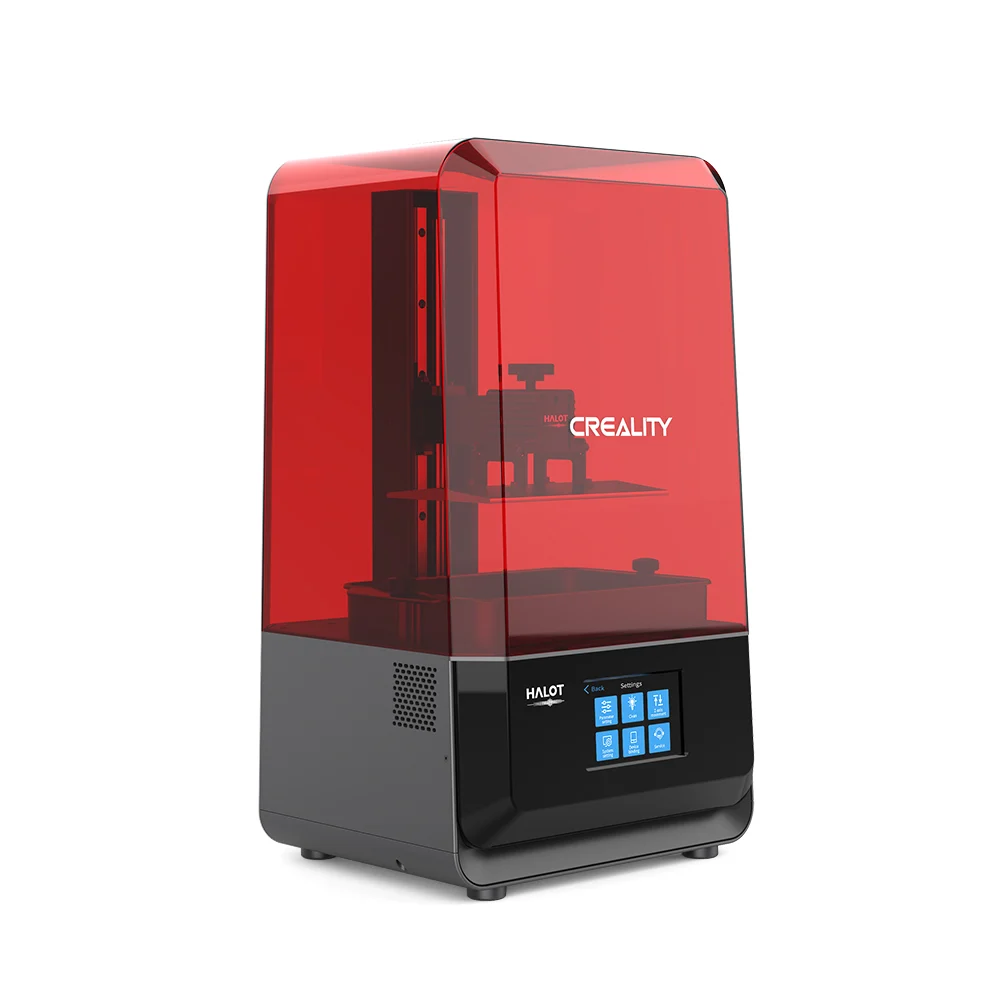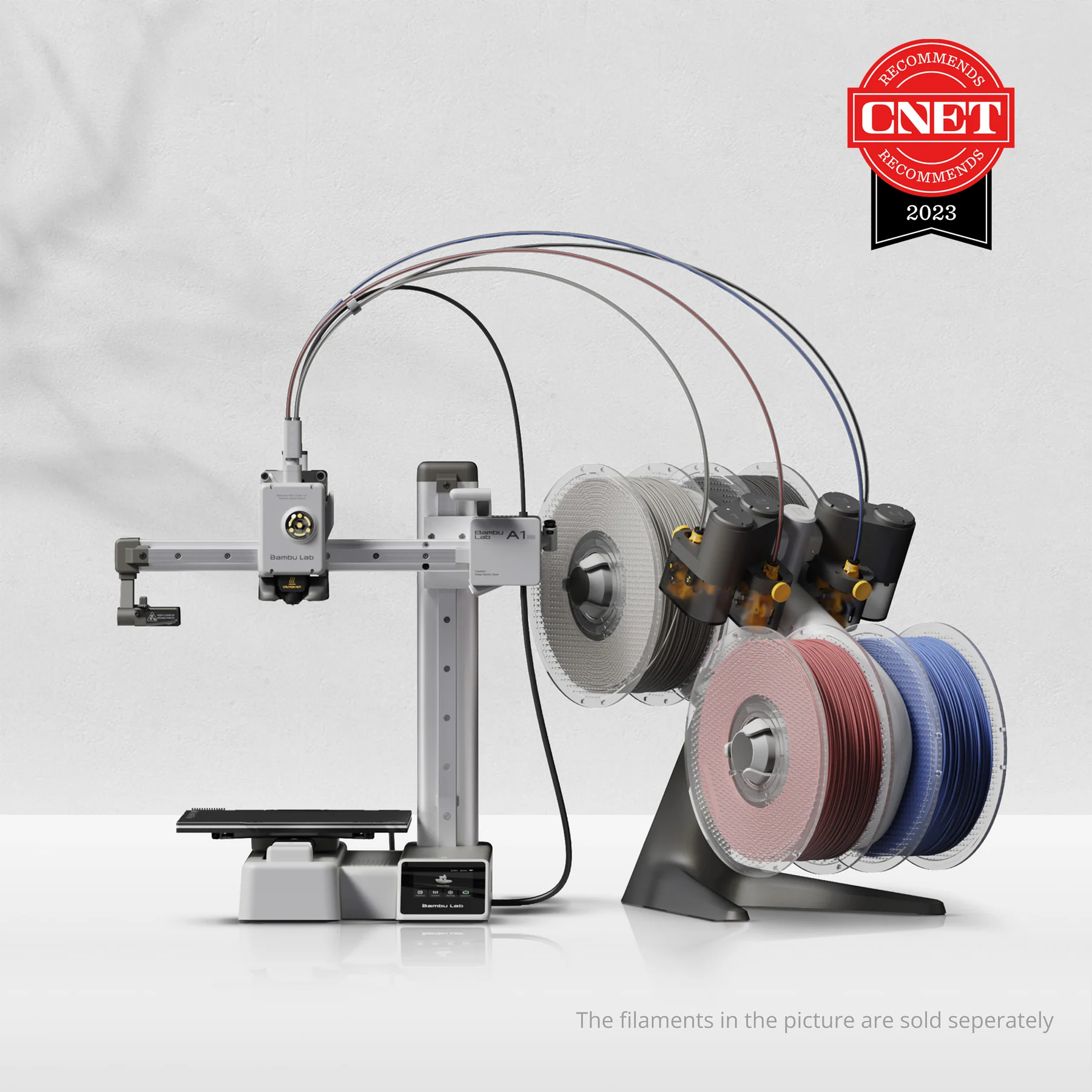Compare Halot Lite vs A1 Mini
Comparison between the best 3D printers
Choose the best 3D printer at the best price. The cheapest 3D printers are here.
Buy a 3D printer here with 3D Fila.
 |
 |
|
| Model | Halot Lite |
A1 Mini |
| Printing Material | Resin | Filament |
| Buy Resin for Creality 3D Halot Lite | Buy Filament forBambu Lab A1 Mini | |
| Estimated price | $400,00 | $549,00 |
| Manufacturer | Creality 3D | Bambu Lab |
| Release Year | 2021 | 2023 |
| Print Volume [mm] | 192x120x200 | 180x180x180 |
| Printer Size [mm] | 330x301x572 | 315x347x365 |
| Weight [kg] | 10,6 | 5,5 |
| Power Loss Recovery | NO | YES |
| Maximum Resolution [mm] | 0,01 | 0,1 |
| Processor | 32-bit Silenciosa | |
| Display | Display touchscreen 5'' | Touchscreen 2,4'' |
| Power Supply | 150 W | |
| Connectivity | SD / USB | Wifi, Bambu bus, Cartão SD |
| Operating systems | Windows, Mac, Linux | Windows, Linux, Macbook |
| Date of registration in the system | 2022-11-04 | 2024-04-10 |
| Release date | 2021 | 2023 |
| Extra features | Crealitys Halot Lite printer stands out in the mid-size resin 3D printing segment, with a build volume of 192 x 120 x 200 mm and 50 micron resolution. It offers a monochrome LCD for fast and durable printing, and an upgraded light source that ensures over 80% uniformity across the print bed. It includes Wi-Fi connectivity for remote control and updates, an ARM Cortex CPU for efficient performance, and is compatible with Halot Box and Lychee slicing software. It also has an activated carbon filter to reduce odors. | The Bambu Lab A1 Mini stands out not only for its impressive speed and automatic calibration, but also for its multi-color printing capability thanks to AMS Lite. This innovative system makes multi-color printing easy, making it accessible to everyone. AMS Lite, specific to the A1 Mini, supports up to four different materials simultaneously, providing creative freedom without complications. With comprehensive sensors for energy monitoring and recovery, a camera for timelapses and Wi-Fi control, the A1 Mini and AMS Lite together offer an intuitive and advanced 3D printing experience, ideal for materials such as PLA, PETG and TPU, and designed for simplicity and fast maintenance with quick-change nozzles. |
| Support for multiple colors and materials (AMS and CFS) | NO | YES |
Notes * |
||
| Cost-benefit | 8 / 10 | 7 / 10 |
| Hardware | 1.2 / 10 | 4.8 / 10 |
| Tela | . | . |
| Print volume | 3 / 10 | 3 / 10 |
| Performance | 9 / 10 | 4 / 10 |
Conclusion |
| In conclusion, when comparing the Creality 3D Halot Lite and the Bambu Lab A1 Mini, several key aspects come into play, influencing the overall value and user experience of each 3D printer. The Halot Lite offers a larger print volume and higher resolution, making it suitable for users focused on detailed resin printing. Its robust design, enhanced light source, and lower price point provide a significant cost-benefit ratio for those who prioritize quality and affordability in the mid-size resin 3D printing market. Conversely, the A1 Mini, while slightly pricier, introduces advanced features such as multi-color printing capability and automatic calibration, appealing to users looking for versatility and ease of use. Its compact design, Wi-Fi connectivity, and effective recovery system position it as a user-friendly option for those interested in various materials and faster print setups. Ultimately, the choice between the two should be guided by individual priorities: the Halot Lite is excellent for high-resolution prints within a more budget-friendly framework, while the A1 Mini offers innovative features and convenience that may justify its higher cost for users seeking a more versatile 3D printing experience. Each printer has its strengths, catering to different user needs, thereby making the decision largely dependent on specific printing goals and preferences. |

